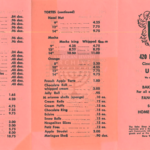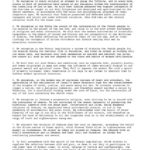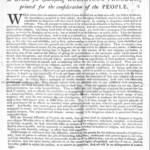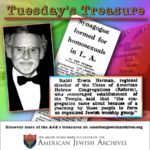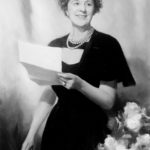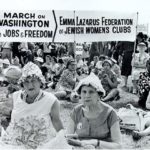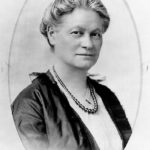Social Justice
Founded in 1929, the Bake Shop, a Jewish bakery in Cincinnati, employed over thirty women in need of work. Funded by the United Jewish Social Agencies, the Bake Shop served the Walnut Hills and Avondale communities for upwards of forty years. Recipe cards from the Bake Shop, preserved at the American Jewish Archives, reveal Jewish…
Read MoreOn November 16-19, 1885, a meeting of the convened at the call of Kaufmann Kohler. The meeting produces the “Pittsburgh Platform” – a document which set forth American Reform positions on such topics as the idea of God, the Jewish mission, and the need for Jews to be actively involved in social justice causes for…
Read MoreAlthough America was intended as a land of liberty, religious freedom was not always guaranteed. In many colonies and later states, Jews struggled for the right to vote, the ability to serve in the government, and for recognition of their religion as equal before the law. Thomas Jefferson, a strong believer in freedom of religion,…
Read MoreBorn in Makó, Hungary on April 10, 1847 to two Jewish parents, Joseph Pulitzer emigrated to the U.S. in 1864 to fight in the Civil War. After moving to St. Louis, Joseph became a naturalized citizen in 1867, passed the bar, served in the state legislature, and began reporting for the Westliche Post. He bought…
Read MoreBeth Chayim Chadashim’s (BCC) first service was held on June 9, 1972 in Los Angeles, California. BCC is the first primarily LGBT synagogue in the United States. BCC, which at the time was known as the Metropolitan Community Temple, began with fifteen members and held services in the local community center. BCC grew and prospered…
Read MoreLet’s discuss the sensational life and legacy of American Jewish educator and philanthropist Rebecca Gratz. Gratz was born in Lancaster, Pennsylvania where she lived with her eleven siblings and her parents Miriam and Michael. In 1801 she established the Female Association for the Relief of Women and Children in Reduced Circumstances which helped families affected…
Read MoreOn January 1st, 1959, Caroline Klein Simon became the second woman to be sworn in as New York Secretary of State. Simon was born November 12th, 1900 in New York City. In 1925 she graduated from New York University Law School. As a woman, she struggled to find work. Simon took an unpaid job at…
Read More“Give me your tired, your poor, Your huddled masses yearning to breathe free.” Emma Lazarus (1849-1887) wrote these words memorialized on the Statue of Liberty. Lazarus was born to a Jewish family in New York, near Union Square, on July 22, 1849. She held a strong classical education along with fluency in German and French.…
Read MoreDeemed simultaneously a “great American hero” and “the most hated lawyer in America,” William M. Kunstler did not pursue law planning to become an advocate for civil rights. Born in 1919 to a middle-class Jewish family in the Upper West Side of New York City, Kunstler attended Yale University (1941) before serving in the Army…
Read MoreThe National Council of Jewish Women (NCJW) issued its founding resolution on September 7, 1893. Organized by Hannah Greenebaum Solomon (1858–1942) during the World’s Fair in Chicago, the NCJW emerged as a leading voice for social reform in this period. Solomon was born in 1858 in Chicago Illinois and in 1876 was elected to the…
Read MoreCategories
- _All Lesson Plans
- _All Snapshots
- Armed Services – American Military
- Art, Entertainment, & Popular Culture
- Black Jewish Relations
- Business & Commerce
- Cincinnati – The Queen City
- Civic Engagement
- Colonial Jews
- Education & Intellectual Life
- Holidays
- Immigration & Community Beginnings
- Interfaith Relations
- Israel & World Judaism
- Organizations & Institutions
- Politics & Government
- Prejudice & Anti-Semitism
- Religion
- Social Justice
- Women

